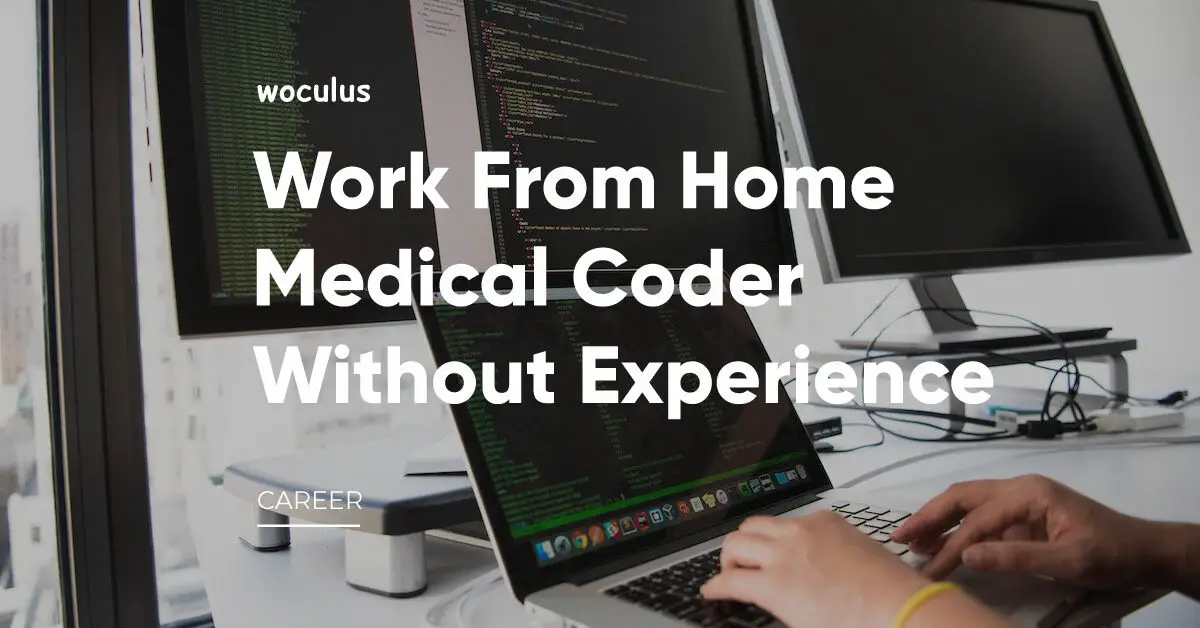Becoming a medical coder without experience can be challenging, especially with the technicalities and expertise that come with the industry. The good news is that the healthcare industry offers an exciting opportunity for individuals who want to work in a challenging and rewarding profession. As a medical coder, you will be responsible for translating medical diagnoses, procedures, and other services into universal codes that can be used for billing and insurance purposes.
Many people think they need extensive experience or a degree in healthcare to become a medical coder, but that’s not necessarily the case. In this blog post, we will explore how to become a medical coder without any experience in the field.
We will discuss the skills and qualifications needed to succeed as a medical coder, the different coding certifications available, and the best ways to gain practical experience in the field. Whether you want to make a career change or start your career as a medical coder, this guide will provide the information and resources you need to get started.
Who Is a Remote Medical Coder Without Experience?
Medical coders are responsible for reviewing medical records and assigning the appropriate codes for diagnoses, treatments, and procedures. These codes are used for billing, tracking healthcare trends, and conducting medical research. A medical coder without experience has received training in medical coding but has not yet gained practical work experience.
Without prior experience, a medical coder may lack the practical skills and knowledge of the healthcare industry that come with working in the field. However, they can gain experience through internships, volunteering, or entry-level positions in medical coding.
Continuing education and staying up-to-date on the latest coding guidelines and regulations can also help improve their skills and knowledge.
How To Be A Medical Writer With No Experience
How Can a Work-From-Home Medical Coder Gain Experience?
There are several ways that a medical coder can gain experience, including internships, volunteering
1. Internships
Internships and apprenticeships are valuable opportunities for medical coders to gain hands-on experience and practical knowledge. These programs are typically offered by hospitals, clinics, and medical coding companies and can provide structured training and guidance from experienced professionals.
During an internship or apprenticeship, a medical coder without experience may have the opportunity to work alongside experienced coders and learn from them. They may be given real-world coding assignments and projects to work on, which can help them develop their skills and portfolio.
To find internship or apprenticeship opportunities, medical coders can search online job boards and career fairs or contact hospitals and clinics in their area to inquire about available programs. Some organizations may require applicants to have completed a coding certification program, so it’s essential to research the requirements before applying.
2. Volunteering
By volunteering their time and skills, medical coders can gain valuable experience in coding and the healthcare industry. They may also have the opportunity to work with different populations, such as underserved communities or patients with specific medical conditions, which can broaden their understanding of the field.
Volunteering can also help medical coders build their professional network. They may meet other healthcare professionals who can provide recommendations or job leads, or they may be able to add volunteer experience to their resumes, making them stand out to potential employers.
Medical coders can search online for non-profit organizations or community health clinics in their area to find volunteering opportunities. They can also contact their professional network, local hospitals, or medical coding companies to ask about volunteer opportunities. Researching the organization and its mission before volunteering to ensure it aligns with its values and goals is essential.
3. Continuing education
Continuing education is an essential aspect of any career, including medical coding. Medical coding is a dynamic field constantly evolving, and medical coders must stay up-to-date with new coding practices, regulations, and industry trends.
Various organizations offer continuing education courses, including colleges and universities, professional associations, and online learning platforms. These courses can be in-person or online, ranging from a few hours to several weeks or months.
Participating in continuing education courses can help medical coders stay competitive in the job market and may even lead to career advancement opportunities.
To find continuing education courses, medical coders can search online for courses and programs that align with their interests and career goals. They can also check with professional associations, such as the American Health Information Management Association (AHIMA) or the American Academy of Professional Coders (AAPC), for information on available courses and certifications.
4. Networking
Networking can provide opportunities to learn from others and gain valuable experience. You can participate in online communities, such as LinkedIn groups, Facebook groups, or online forums, to connect with other medical coders, share knowledge, and build relationships. Furthermore, you can start attending industry events, such as conferences and seminars, to meet other medical coders, network with peers, and learn from industry experts. Lastly, joining professional associations, such as the American Academy of Professional Coders (AAPC) or the American Health Information Management Association (AHIMA), can provide valuable networking opportunities.
Note that networking is an ongoing process, and it requires time and effort to build and maintain relationships with other professionals. Make sure you keep your professional network up to date.
5. On-the-job Training
On-the-job training provides medical coders with hands-on experience in a real-world setting. They can practice coding using the organization’s systems and workflows, preparing them for the job’s demands. Furthermore, you also get to develop yourself professionally by attending seminars, workshops, or conferences. These opportunities can enhance your knowledge of coding systems and improve your overall skills as a medical coder. On-the-job training can also help medical coders develop the skills and knowledge needed to advance their careers.
6. Personal Projects
Practice medical coding by working on personal projects or helping friends and family with medical billing. This can help you gain hands-on experience and build your skills. You can focus on a particular medical specialty or type of procedure to code. This will help you better understand the codes and guidelines associated with that practice area. Try to simulate real-world scenarios that a medical coder might encounter. This could involve creating patient case studies or working on coding assignments based on actual medical records.
Remember, gaining experience in medical coding is an ongoing process, and it’s essential to keep learning and growing in your profession.
Skills Needed to Succeed as A Medical Coder without Experience
Medical coding is a crucial component of the healthcare industry, and medical coders play an essential role in ensuring that healthcare providers receive timely reimbursement for their services. To succeed as a medical coder, you will need to have the following skills and qualifications:
- Knowledge of Medical Terminology: Medical coders must thoroughly understand medical terminology, anatomy, and physiology to code medical diagnoses and procedures accurately.
- Understanding of Medical Coding Systems: Medical coders must be familiar with the International Classification of Diseases (ICD) coding system, the Current Procedural Terminology (CPT) coding system, and the Healthcare Common Procedure Coding System (HCPCS).
- Attention to Detail: Medical coding requires a high level of accuracy and attention to detail, as mistakes can result in incorrect billing and reimbursement.
- Analytical Skills: Medical coders must be able to analyze medical records and documentation to determine the appropriate codes to use for billing purposes.
- Computer Skills: Medical coders must be comfortable using computer software to access medical records, code diagnoses, and procedures, and submit claims electronically.
- Certification: While not always required, many employers prefer to hire medical coders who hold certification from a recognized coding organization such as the American Health Information Management Association (AHIMA) or the American Academy of Professional Coders (AAPC).
How To Become A QA Tester With No Experience: Complete Guide
Coding Certification for Medical Coders without Experience
There are several coding certifications available for medical coders without expertise. Here are some of the most common certifications
1. Certified Professional Coder (CPC)
This certification is offered by the American Academy of Professional Coders (AAPC) and is designed for individuals with little or no experience in medical coding. The CPC certification exam tests candidates on their knowledge of medical terminology, anatomy, and coding guidelines.
2. Certified Coding Associate (CCA)
The CCA certification is offered by the American Health Information Management Association (AHIMA) and is designed for individuals with limited experience in medical coding. The exam tests candidates on their knowledge of medical terminology, anatomy, and basic coding concepts.
3. Certified Medical Coder (CMC)
The Practice Management Institute (PMI) offers the CMC certification and is designed for individuals with limited experience in medical coding. The exam tests candidates on their knowledge of medical terminology, anatomy, and coding guidelines.
4. Certified Coding Specialist (CCS)
The CCS certification is offered by AHIMA and is designed for experienced coders with at least two years of coding experience. The exam tests candidates on their knowledge of medical terminology, anatomy, and advanced coding concepts.
5. Certified Professional Medical Auditor (CPMA)
The CPMA certification is offered by AAPC and is designed for individuals with experience in medical coding who wish to specialize in medical auditing. The exam tests candidates’ knowledge of medical coding guidelines, auditing concepts, and compliance regulations.
It’s important to note that while certification can help gain employment as a medical coder, it is not always required. Some employers may offer on-the-job training or prefer candidates with other types of experience, such as in healthcare or customer service.
Become A Remote Cloud Engineer: Everything You Need to Know
Frequently Asked Questions About a Medical Coder without Experience
1. Who Is a Medical Coder?
A medical coder is a healthcare professional responsible for reviewing medical records and assigning specific codes to different diagnoses, procedures, and treatments.
2. Do I Need the Experience to Become a Medical Coder?
While experience is helpful, it is not always required. Many entry-level medical coding jobs require only a high school diploma or equivalent and offer on-the-job training.
3. What Skills Do I Need to Become a Medical Coder?
Some critical skills for a medical coder include attention to detail, knowledge of medical terminology, proficiency in coding languages such as ICD-10 and CPT, and the ability to work independently.
4. What Certifications Do I Need to Become a Medical Coder?
There are several certifications available for medical coders, including the Certified Professional Coder (CPC) and Certified Coding Specialist (CCS) certifications. These certifications are not always required but can increase job opportunities and earning potential.
5. how Do I Gain Experience as A Medical Coder?
There are several ways to gain experience as a medical coder, including internships, entry-level positions, and volunteer work. You can also consider taking additional courses or obtaining certifications to improve your skills and knowledge.
6. What Is the Job Outlook for Medical Coders?
The job outlook for medical coders is positive, with a projected growth rate of 8% from 2019 to 2029. This growth is due to an aging population and an increased demand for healthcare services.
7. What Is the Average Salary for A Medical Coder?
The average salary for a medical coder varies depending on location, experience, and certifications. Still, the median annual wage for medical records and health information technicians, which includes medical coders, was $44,090 in May 2020.
8. What Do Medical Coders Face Some Common Challenges?
Some common challenges medical coders face include keeping up with changing coding regulations and guidelines, managing a high volume of records, and working with incomplete or inaccurate information. Strong problem-solving skills and attention to detail are essential in overcoming these challenges.
Conclusion
In conclusion, becoming a medical coder without experience is possible with the right mindset, approach, and resources. Aspiring medical coders can take the necessary steps towards a successful career by exploring further education and certification options, gaining practical experience through internships or volunteering, and networking with professionals in the field. It may require dedication, perseverance, and a willingness to learn, but the rewards of a fulfilling healthcare career can be worth the effort.
It’s important to remember that learning doesn’t stop once you’ve entered the field, as medical coding constantly evolves with updates to regulations and technology. You can thrive in this dynamic and rewarding profession by staying up-to-date and continuously improving your skills.






